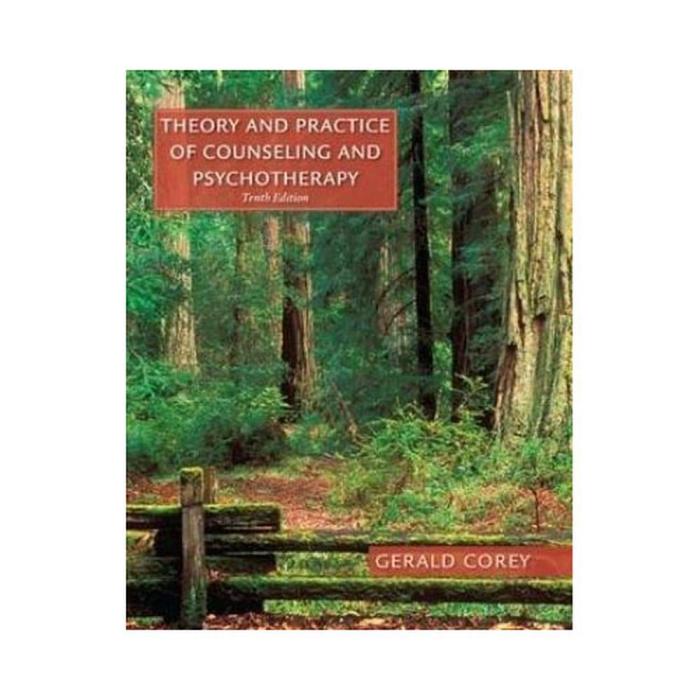Theory and practice of counseling and psychotherapy 10th ed – In the esteemed realm of counseling and psychotherapy, the 10th edition of “Theory and Practice of Counseling and Psychotherapy” stands as a beacon of knowledge and guidance. This comprehensive text delves into the depths of the field, offering a panoramic view of its key concepts, ethical considerations, and practical applications.
From exploring the nuances of major theoretical approaches to delving into the intricacies of assessment and diagnosis, this book empowers readers with a thorough understanding of the counseling and psychotherapy process. Its insights into the therapeutic relationship, ethical dilemmas, and emerging trends equip practitioners with the tools they need to navigate the complexities of this dynamic field.
Introduction to the Theory and Practice of Counseling and Psychotherapy
This book provides a comprehensive overview of the theory and practice of counseling and psychotherapy. It begins with a discussion of the definitions, historical context, and ethical considerations of counseling and psychotherapy. The book then examines the major theoretical approaches in counseling and psychotherapy, including psychodynamic, humanistic, cognitive-behavioral, and systemic approaches.
Major Theoretical Approaches in Counseling and Psychotherapy
Psychodynamic Approach
The psychodynamic approach is based on the idea that unconscious conflicts and early childhood experiences play a significant role in shaping personality and behavior. Psychodynamic counselors and psychotherapists use techniques such as free association, dream analysis, and transference to help clients gain insight into their unconscious conflicts and resolve them.
Humanistic Approach
The humanistic approach emphasizes the importance of the individual’s subjective experience and self-actualization. Humanistic counselors and psychotherapists use techniques such as active listening, empathy, and unconditional positive regard to help clients develop self-awareness, self-acceptance, and personal growth.
Cognitive-Behavioral Approach
The cognitive-behavioral approach focuses on the relationship between thoughts, feelings, and behavior. Cognitive-behavioral counselors and psychotherapists use techniques such as cognitive restructuring, behavioral activation, and exposure therapy to help clients change their negative thoughts and behaviors.
Systemic Approach, Theory and practice of counseling and psychotherapy 10th ed
The systemic approach views individuals as part of a larger system, such as a family or community. Systemic counselors and psychotherapists use techniques such as family therapy, group therapy, and community interventions to help clients improve their relationships and functioning within their systems.
Assessment and Diagnosis in Counseling and Psychotherapy

Assessment and diagnosis are essential components of counseling and psychotherapy. Assessment involves gathering information about the client’s presenting problems, history, and current functioning. Diagnosis involves using this information to determine the client’s diagnosis, which can help guide treatment planning.
There are a variety of methods and techniques that can be used for assessment and diagnosis, including:
- Interviews
- Psychological tests
- Observation
- Medical records
Treatment Planning and Intervention Strategies

Treatment planning is a collaborative process between the counselor or psychotherapist and the client. The treatment plan should be based on the client’s assessment and diagnosis and should include specific goals, objectives, and intervention strategies.
There are a variety of intervention strategies that can be used in counseling and psychotherapy, including:
- Psychodynamic therapy
- Humanistic therapy
- Cognitive-behavioral therapy
- Systemic therapy
- Medication
The Counseling and Psychotherapy Relationship
The counseling and psychotherapy relationship is a unique and important one. The counselor or psychotherapist provides a safe and supportive environment in which the client can explore their thoughts, feelings, and behaviors.
The counselor or psychotherapist also helps the client to develop insight into their problems and to find ways to cope with them. The counseling and psychotherapy relationship is based on trust, respect, and confidentiality.
Ethical and Legal Issues in Counseling and Psychotherapy
Counselors and psychotherapists are bound by a number of ethical and legal guidelines. These guidelines protect the client’s confidentiality, ensure that the client is treated with respect, and prevent the counselor or psychotherapist from engaging in any harmful or unethical behavior.
Some of the most important ethical and legal issues in counseling and psychotherapy include:
- Confidentiality
- Informed consent
- Dual relationships
- Exploitation
- Negligence
Multicultural and Diversity Issues in Counseling and Psychotherapy
Counselors and psychotherapists must be aware of the cultural and diversity issues that can affect their work with clients. These issues include:
- Race
- Ethnicity
- Gender
- Sexual orientation
- Disability
- Religion
Counselors and psychotherapists must be able to work with clients from diverse backgrounds in a culturally sensitive and respectful manner.
Research in Counseling and Psychotherapy: Theory And Practice Of Counseling And Psychotherapy 10th Ed
Research is essential to the development and improvement of counseling and psychotherapy. Research can help to identify effective interventions, understand the causes of mental health problems, and improve the quality of care.
There are a variety of research methods that can be used in counseling and psychotherapy, including:
- Quantitative research
- Qualitative research
- Mixed methods research
Emerging Trends in Counseling and Psychotherapy
The field of counseling and psychotherapy is constantly evolving. New approaches and interventions are being developed all the time. Some of the most recent trends in counseling and psychotherapy include:
- Positive psychology
- Mindfulness-based interventions
- Online and telehealth counseling
- Integrated care
- Prevention and early intervention
Top FAQs
What are the key ethical considerations in counseling and psychotherapy?
Confidentiality, informed consent, dual relationships, and cultural sensitivity are among the primary ethical considerations.
How can counselors and psychotherapists effectively work with clients from diverse backgrounds?
Cultural competence involves understanding and respecting cultural differences, adapting interventions to meet clients’ needs, and seeking consultation when necessary.